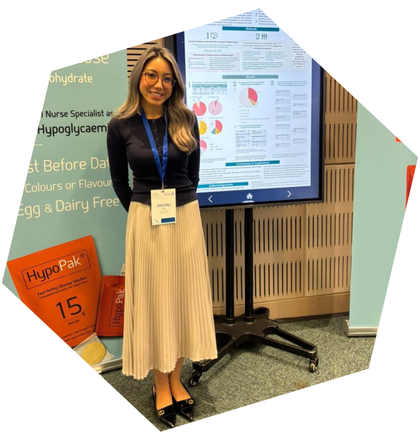Case Study
Research Review: Supporting Māori and Pacific Communities Through Advanced Technology
Diabetes New Zealand Research Foundation Summer Studentships 2024-5: Supporting Māori and Pacific Communities Through Advanced Technology Caleb Lopez-Sanchez
During my summer break between the second and third years of medical school, I joined the diabetes research team at the Department of Paediatrics and Child’s Health, University of Otago in Dunedin. Under the guidance of Dr Alisa Boucsein and Professor Ben Wheeler, I contributed to a study assessing glycaemic outcomes from an automated insulin delivery (AID) trial involving Māori and Pacific adults.
AID systems are widely recognised as the gold-standard therapy for people with type 1 diabetes. Yet, Māori and Pacific Peoples—as well as other non-European ethnic groups—remain underrepresented in both clinical trials and access to this technology. These communities often face structural barriers, inequities, and restrictive funding criteria that limit their ability to benefit from such advancements. The research team and I believe these high-priority populations may have the most to gain from AID systems.
Pharmac’s decision in late 2024 to expand funding for advanced diabetes technologies, including AID systems, marks a significant step forward. However, disparities in access and higher discontinuation rates persist for Māori and Pacific Peoples. Our research aimed to address this gap.
Throughout the study, I supported the team during participant visits and helped analyse data collected at baseline and six weeks. The results were encouraging: Māori and Pacific adults with above-target glycaemia—historically underrepresented in type 1 diabetes research—showed substantial improvements using AID technology. In fact, our findings not only align with but in some cases exceed outcomes from previous trials involving traditional populations.
This research is the first of its kind to focus specifically on Māori and Pacific adults in the context of AID use, and it has both local and global implications for equitable diabetes care. I’m excited to present our findings at the NZSSD scientific meeting in Kirikiriroa (Hamilton) later this year and to see where this experience leads in the future.


